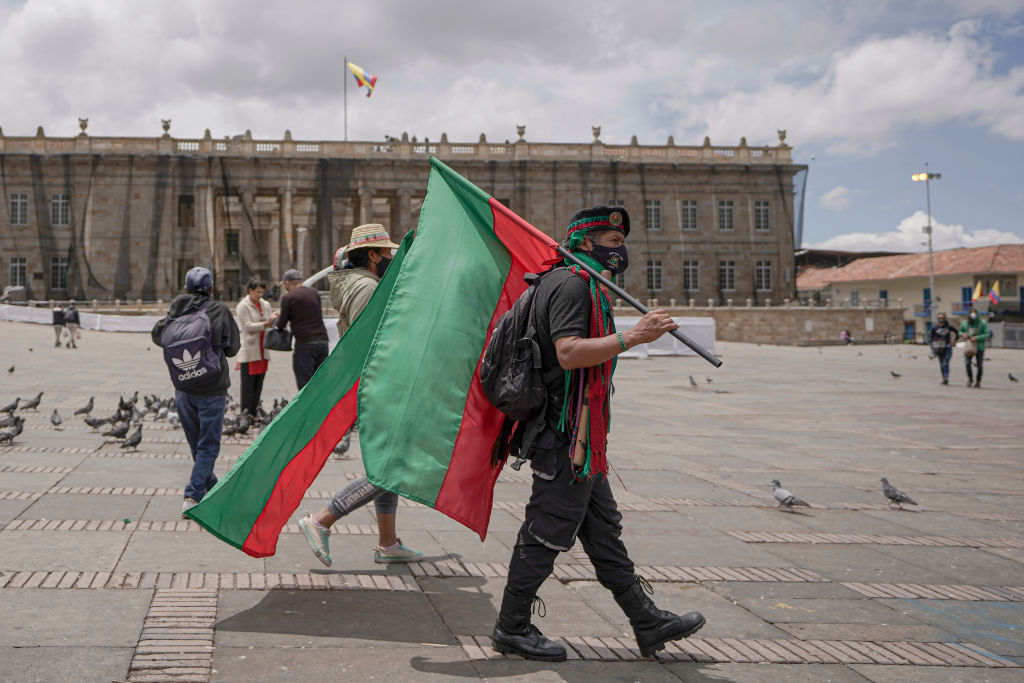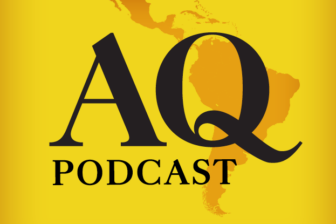Since nearly the start of the COVID-19 pandemic, economic and political analysts have seen an urgent need – and opportunity – for Latin America to pursue reform.
The argument is simple: The aftershocks of the current crisis will be devastating and long-lasting unless the region takes steps now to strengthen its labor markets and improve fiscal sustainability. That means taking advantage of unusual political circumstances to rally support for difficult decisions that have been put off for far too long.
A failure to act would risk turning COVID-19 into the preamble to another lost decade. Unfortunately, there is little to suggest that governments in the region are prepared to use crisis in the present to prepare for the future.
Throughout Latin America, the general response to COVID-19 has been to confront the challenge with increased spending. This will not have a happy ending. Governments will inherit massive debts, making it hard to deal with social unrest resulting from increased poverty and unemployment. Instead, the region needs to start making adjustments now – not only to spur economic recovery, but also to plant the seeds for a more sustainable performance down the road.
The International Monetary Fund (IMF) last week added its voice to the chorus of those urging governments not to delay reform. As the region takes on debt to deal with the crisis, it will need to avoid falling over the fiscal cliff once the pandemic subsides, according to the IMF. That could mean, for example, pre-approving tax increases or the reduction in certain spending to be implemented once economic conditions return to normal. Labor laws could be changed to make it less costly for firms to hire (or hire back) workers, at least for the time being.
Indeed, the right mix of reforms would have benefits in the short term as well. Given a better reading of future economic risks, markets and credit agencies would likely give countries increased fiscal space and capacity to deal with COVID-19 right now, when it is most needed.
But there is little to suggest an appetite for reform. Few if any governments in the region have seriously pursued policy changes with a view not just of the short-term crisis but also their countries’ long-term health.
Seldom has the disconnect between the opportunity for reform and the interest in pursuing it been so great. Instead of simply trumpeting the importance of reform, then, it’s important to also ask why it isn’t happening.
In my view, there are five main reasons why Latin American governments have so far been unwilling to invest political capital in modifying the status quo:
1. Fear of protest: The memories of social unrest are fresh in the minds of many governments, especially of those in countries such as Colombia and Chile where major protests have taken place during the pandemic itself. Leaders know that any poorly explained (or poorly received) reform proposal could spark new waves of discontent. History is full of examples in which governments lose popularity, legitimacy and drive when their people take to the streets.
2. Emergency management: Governments right now are consumed with coordinating the response to an immediate crisis. In many cases this has given them visibility, popularity and a degree of political protection. Moving on from that role to become the bearer of bad news (or at least news that is difficult to digest) requires a certain temperament: namely, the one that separates good administrators from real leaders. Asking Chief Responder Officers to become Chief Reform Officers is not always welcomed.
3. Genuine uncertainty: There are a host of unknown factors still surrounding the pandemic, pushing governments towards reform inaction. Things could get better in the short term, or they could get worse. As a result, leaders are taking an old maxim to extremes: “When in doubt, abstain.”
4. Lack of global leadership: Whose model can Latin America follow? Since the start of the pandemic, there has been precious little foresight on display from leaders in the region or beyond it. Those in positions of power are not leading, and those with the knowledge and experience to lead don’t have power.
5. Lack of external pressure: Latin American governments are facing little pressure from abroad to anticipate the problems of the post-COVID world. Despite frequent failings, in the past the IMF and World Bank have been agents of reform. But both have now a different attitude, ready to provide financing to countries without asking too many questions. Ratings agencies could play that role, but they are still in quarantine mode. To be sure, Latin American governments will need to anticipate the potential for a series of unpleasant decisions once the ratings agencies come out of confinement; few seem to be doing so.
A final consideration is that the commodities boom created in Latin America unreal expectations on the part of the public in general. We were intoxicated into thinking that anything was possible. We came to expect a steady march toward more rights and guarantees, more benefits and privileges, despite living in a hemisphere that has long suffered slow growth and that was headed toward economic storm clouds long before the pandemic.
Now is the time to take on the region’s challenges, even if demagogues will try to avoid them. Any failure will come at a great cost to 600 million people.
—
Cárdenas is a distinguished visiting fellow at the Center on Global Energy Policy at Columbia University and was Colombia’s Finance Minister (2012-2018). Follow him on twitter @MauricioCard






